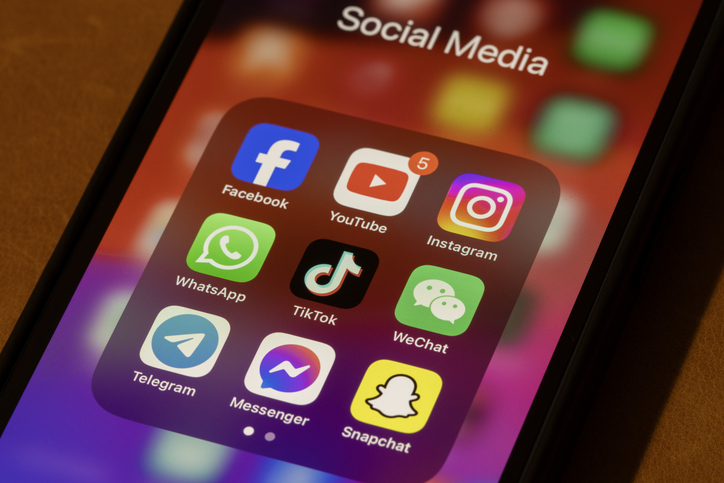Social media was supposed to connect the world. Instead, it’s increasingly dividing courtrooms. What began as digital expression has evolved into a complex legal battleground—where tweets, posts, and comments can trigger lawsuits or even criminal charges. The question facing both users and attorneys in 2025 is simple but unsettling: where does free speech end and legal liability begin?
The Rise of “Online Harm” as a Legal Concept
Courts across the country are catching up to a reality that’s long been obvious to anyone who’s spent time online—digital behavior can cause real-world damage. From defamation and harassment to doxxing and cyberstalking, online interactions have blurred the lines between protected expression and punishable conduct.
In 2024, California and New York both enacted expanded cyber-harassment statutes, making it easier for victims to seek restitution when targeted online. Similar legislation is pending in several other states, reflecting a growing recognition that the internet isn’t a lawless space.
Yet, this evolution brings complications. Social platforms thrive on user engagement, not truth or restraint, and their moderation policies often lag far behind legal developments. The Electronic Frontier Foundation has warned that overbroad regulations could chill free speech, while under-enforcement leaves victims without recourse. The result is a confusing middle ground—one where civil lawsuits and criminal charges increasingly intersect.
When a Post Becomes a Lawsuit
Consider a scenario that’s becoming alarmingly common: a heated online argument escalates into public accusations. The accused claims defamation; the accuser claims harassment. Screenshots, reposts, and algorithmic amplification magnify the damage.
According to Reuters Legal, defamation claims involving social media posts rose by nearly 35% in 2024 alone. Employers are also factoring online conduct into hiring decisions, and prosecutors have begun introducing posts and DMs as evidence in criminal proceedings.
It’s not just public figures who are at risk. Everyday users are learning that “delete” doesn’t mean “disappear.” Posts can be archived, screen-captured, and used to establish motive or intent in court. In some states, even “private” messages can be subpoenaed in civil litigation.
Free Speech vs. Accountability: A Legal Tightrope
The First Amendment protects speech—but not all of it. True threats, incitement, and defamation remain outside constitutional protection. However, defining those boundaries in the digital era is difficult.
Social media’s tone—sarcasm, exaggeration, anonymity—complicates context. What looks like a joke to one user can read as intimidation to another. And when content goes viral, local jurisdictional boundaries vanish, pulling courts into uncharted legal territory.
The American Bar Association has noted that digital speech cases now account for a growing portion of defamation and harassment dockets nationwide. This has led to a surge in specialized practice areas focused on digital forensics, reputation defense, and cyber-law litigation.
Criminal Implications in a Connected World
What many don’t realize is that online misconduct can also cross the line into criminal territory. Certain actions—such as cyber harassment, threats, or non-consensual image sharing—carry severe penalties under state and federal law.
In such cases, digital evidence becomes the cornerstone of the prosecution. But as legal analysts have pointed out, digital evidence can be misinterpreted, manipulated, or taken out of context—sometimes leading to wrongful accusations.
When this happens, having a skilled Huntington criminal defense lawyer becomes crucial. These attorneys understand both the nuances of state criminal procedure and the evolving digital landscape, ensuring that clients’ constitutional rights are protected when social media activity is used against them.
How Attorneys Are Adapting
Forward-thinking law firms are building interdisciplinary teams to handle the influx of social-media-related cases. They combine traditional litigation strategies with digital evidence experts, cybersecurity consultants, and social media analysts.
Legal scholars are also calling for clearer national standards. The National Conference of State Legislatures has advocated for more uniformity across states to prevent inconsistent application of online harm laws—something that could drastically affect both victims and defendants.
Looking Ahead: The Future of Digital Accountability
The next frontier of social media law will likely center on AI-generated content—deepfakes, synthetic voices, and automated harassment bots. As courts attempt to apply old statutes to new technologies, one thing is clear: the balance between accountability and expression will only grow more precarious.
For everyday users, the takeaway is straightforward: online words carry weight, and digital missteps can have lasting legal consequences. Whether you’re defending your reputation—or your freedom—understanding how the law views social media behavior has never been more essential.
Protecting Your Digital Rights in a New Legal Era
As the boundaries between our digital and physical worlds continue to blur, so too does the line between personal expression and criminal conduct. Protecting yourself requires awareness, restraint, and when necessary, legal advocacy from professionals who understand this evolving terrain—such as a Huntington criminal defense lawyer who can navigate the intersection of law, technology, and personal rights.





Leave A Comment